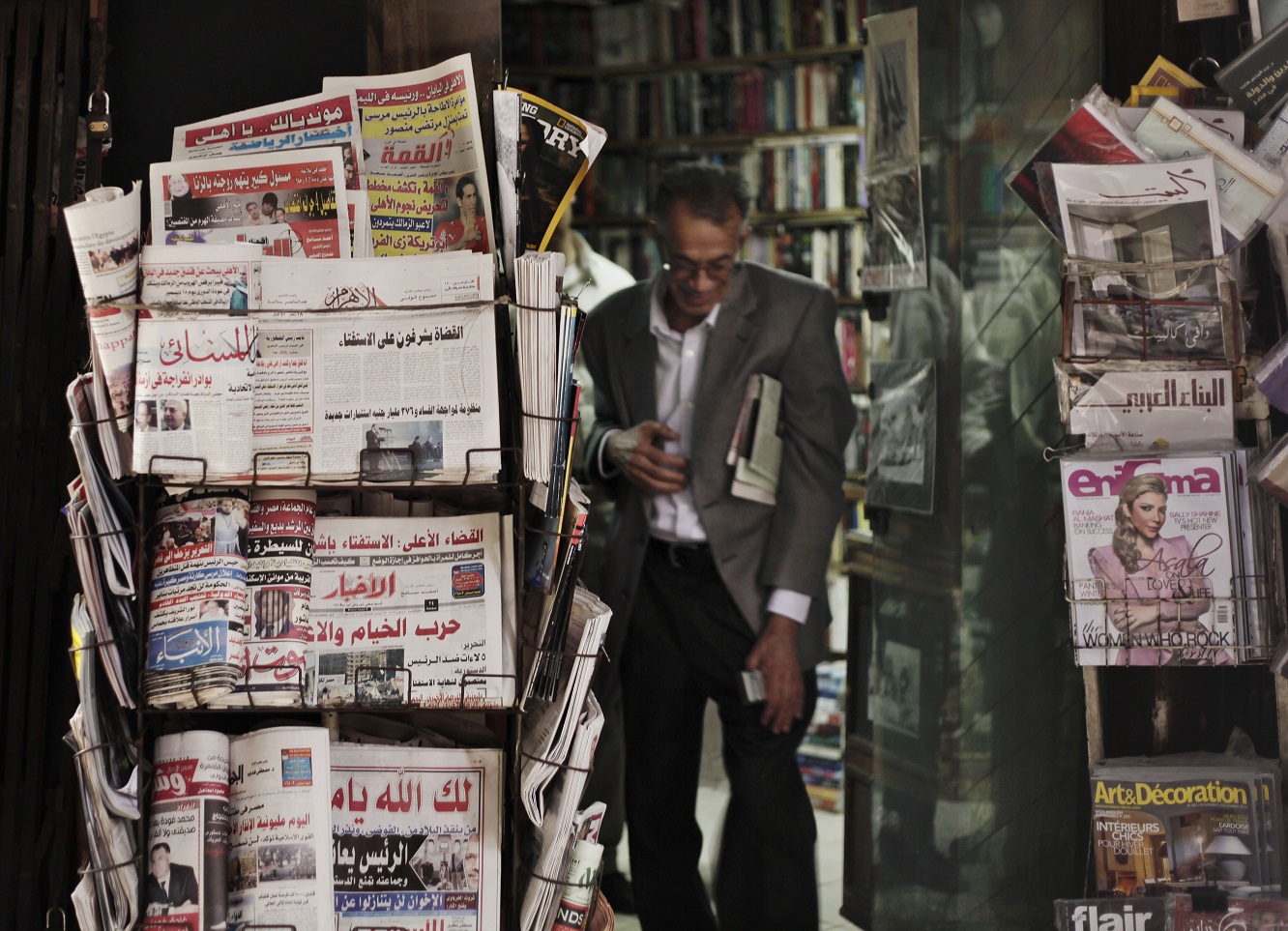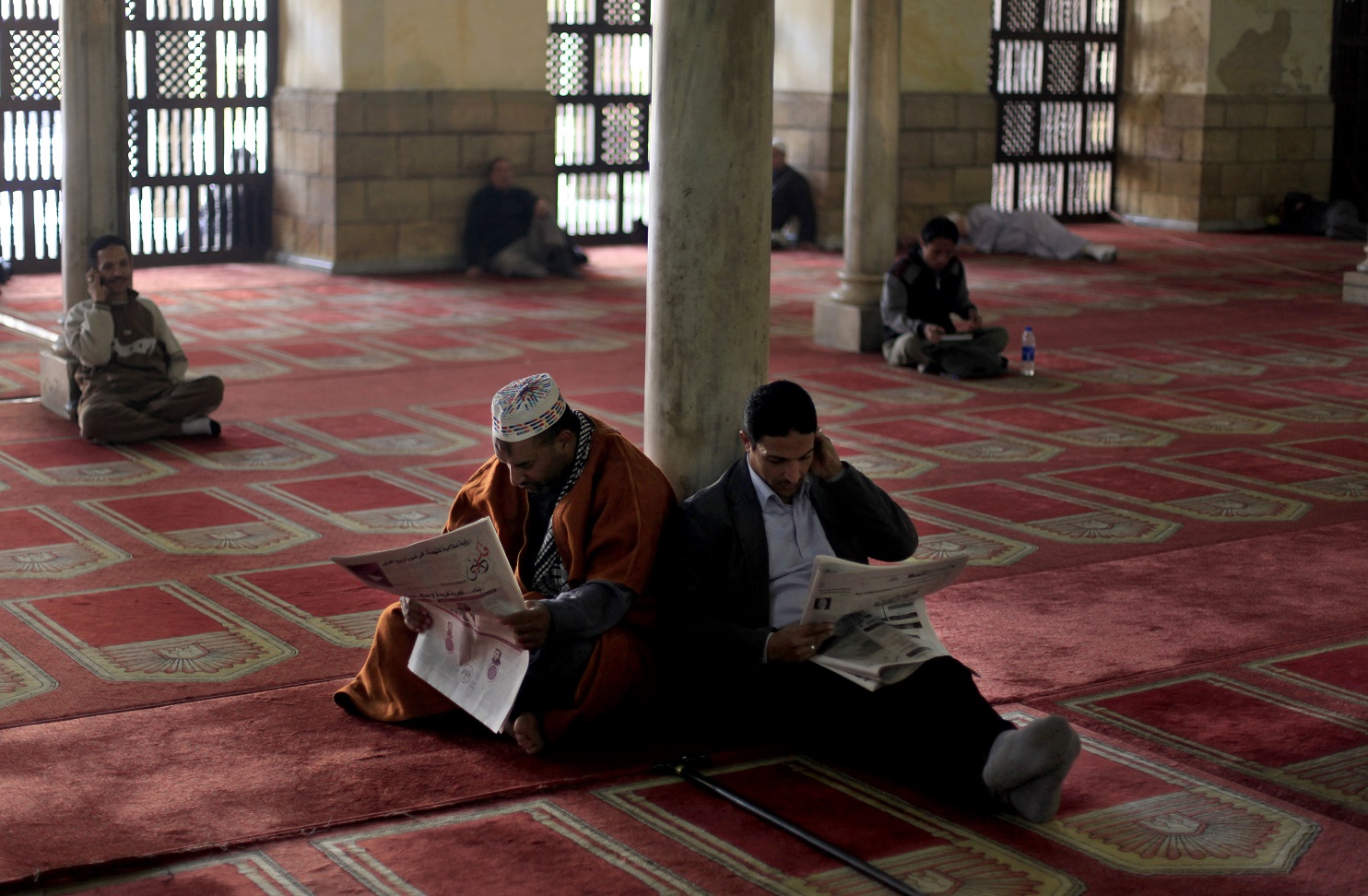في العام 1988 نشرت المفكرة الهندية غاياتري سبيفاك ورقتها الشهيرة "هل يستطيع التابع أن يتحدّث؟" (Can the Subaltern Speak?). والمقصود بالتابع هو الفرد الذي عاش تحت الاستعمار وتشكلت معارفه انطلاقا من أدوات المستعمِر. سؤال سبيفاك جاء انطلاقا من فكرة أن أدوات المعرفة واستنباطها تشكّلت من قِبل المستعمِر ومفكريه، بالنظر إلى أنهم من ملكوا السلطة لفرض هذه الأدوات على الشعوب المستعمَرة، وأنه بعد خروج المستعمِر، لم يستطع "التابع" أن يُفكّر ويفهم واقعه إلا استنادا إلى تلك الأدوات، وهي -بالضرورة- منزوعة السياق ولا تصلح للتطبيق في مجتمعات تختلف تركيبتها وسياقاتها عن المجتمعات الغربية، فأصبح "التابع" غير قادر على التكلم عن نفسه انطلاقا من ثقافته وسياقاتها المعبرة عنه، بل من ثقافة وسياقات المستعمر.
وانطلاقا من مقاربة سبيفاك، وعودة إلى الصحافة العربية، فإنه خلال السنوات الماضية ظهرت توجهات جديدة تمثّلت فيما سُمي حينها "بالإعلام البديل" أو "الإعلام المستقل" الذي برز بشكل كبير مع دخول الألفية وانتشار الإنترنت، وهو ما خلق قناة جديدة أكثر فعالية للتواصل بين الصحفيين والكيانات والمؤسسات العالمية، وبعيدا عن السلطة. كما أن بدء اطّلاع الصحفيين على التجارب العالمية التي شكّلت نقطة إحالة، جعلهم ينطلقون منها في قراءة واقعهم الصحفي، مما ساهم في إدراكهم لحجم الهوّة بين الصحافة الغربية والعربية، والأهم من ذلك وعيهم بواقعهم وما فيه من إشكاليات.
وعليه، يمكن القول إن هذه التوجهات الصحفية الجديدة برزت كردة فعل رافضة لكل أدبيات الصحافة العربية السابقة بعد الوعي بها، والتي عاشت وتربت في ظل أنظمة سلطوية فرضت على الصحافة سرديتها، وشكّلت لها دورها ودجنته في أطر محدودة ومعرّفة، تسعى لتعزيز هيمنة السلطة على المعرفة وتحديد أولويات المجتمع بما يخدم أجندات السلطة. ومن ثم لجأت إلى النموذج الغربي، منطلقة من فكرة أنّه شكَّل الضد من الوضع القائم وحقق نتائج إيجابية "هناك"، فسعت إلى مسايرة تلك الأجندات التي يدعمها الممول الغربي، ولهدفين رئيسيين: ضمان الاستمرارية عبر تحصيل التمويل، والانطلاق من مقاربة "معولمة" للصحافة تؤمّن لتلك المؤسسات الإعلامية اعترافا دوليا نسبيا.

قراءة منزوعة السياق
بعيدا عن شيطنة أو تمجيد مؤسسات التمويل، ومن منطلق قراءة عامة لبرامج المنظمات المانحة، يُفهم أن الهدف منها حثّ المشاريع الصحفية على الاستمرار في أداء عملها الرقابي وتشجيع المبادرات الصحفية الجديدة.
وتَركّزت أجندات المؤسسات المانحة والممولة لبرامج تنمية الإعلام، على قضايا مثل مكافحة الفساد، وتعزيز الحوكمة والمساءلة، وحقوق المرأة، وغيرها من القضايا التي تبدو فعلا ذات أهمية في المنطقة العربية. لكن هذه البرامج تطرح معالجتها لتلك القضايا من خلال منظور المركزية الغربية (Eurocentric) الاستشراقية، ومن قراءتها الذاتية للمجتمعات العربية واستنتاجاتها للكيفية التي يمكن بها للصحافة أن تؤدي دورها بشكل أكثر فعالية في المجتمعات، إن سلمنا جدلا أن هذا هو الهدف الفعلي. ومشكلة هذه المقاربات أنها تنظر إلى قضايا المجتمعات في الدول النامية من منظور أوروبي، دون فهم كافٍ لخصوصية كل سياق والاختلاف فيما بينها.
أثناء مداخلة له في مؤتمر "تنمية الإعلام والاستدامة في إفريقيا"، قال أستاذ اقتصاديات الإعلام (Media Economic Studies) روبرت بيكارد المدير السابق لمعهد رويترز التابع لجامعة أكسفورد (2010 - 2014): إن سبب عدم استدامة ونجاعة مشاريع تنمية الإعلام في الدول النامية هو أن وكالات وبرامج التنمية الغربية ذهبت إلى بذل جهود في تطوير وسائل الإعلام بما يخدم أهداف السياسة الخارجية الطارئة للدول التي تأتي منها تلك البرامج، بدلا من أن تضع أهداف تنمية مستدامة للإعلام في تلك الدول، مضيفا أن جهود تطوير وسائل الإعلام من قبل برامج التنمية الغربية، سعت إلى إعادة تمثيل أشكال وممارسات وسائل الإعلام الموجودة في الغرب، دون اعتراف كامل بالاختلافات الواسعة بين تلك المجتمعات والمجتمعات النامية. و"الأسوأ من ذلك" -على حد تعبيره- أن تلك البرامج تسعى إلى إعادة إنشاء أنواع وأنماط إعلامية بدأت بالانهيار وثبت فشلها في "العالم المتقدم".
وفي سياق شرحه للانفصال عن السياق، اعتبر بيكارد أن تعليم مبادئ وممارسات الصحافة الغربية فشل فشلا كبيرا في تطوير الصحافة في مناطق عدة، لأن الوكالات والبرامج الغربية المتخصصة في تنمية الإعلام، لم تأخذ في اعتبارها وجود واقع اجتماعي وثقافي مختلف في تلك الدول.
مداخلة بيكارد توضّح أبرز إشكاليات برامج تمويل الإعلام الغربية، إذ تنطلق من تحليل واقع الإعلام في الدول النامية من مقاربة غربية، فتعتقد أنها بإعادة تمثيل أنماط العمل والمبادئ الصحفية الغربية، قادرة على حل مشاكل الإعلام في الدول النامية، في حين أنها ربما تتسبب في تفاقمها، فلا المناخ السياسي في دول "العالم الثالث" أو "ما بعد الاستعمارية" مناخ ديمقراطي حر، ولا مشاكله المركّبة تتشابه مع مشاكل المجتمعات الغربية، ولا سياقه الثقافي كذلك. لذا، عندما تُركّز برامج تمويل الإعلام على قضايا مثل تمكين المرأة سياسيا، فإنها تُغفل أن النظام السياسي في تلك البلاد هو أصل المشكلة، وأن الرجل والمرأة -على حد سواء- لا يتمتعان بقرار سياسي حر.
ويمكن قياس المثال السابق على معظم أجندات التمويل التي نتفق على أهميتها، لكنها لا تعالج أسّ المشكل. فأن تُركّز برامج التمويل على قضايا مثل الحوكمة دون العمل بشكل جدي على استقلالية الإعلام، يعني أنها ستترك "ظهر" الصحفيين مكشوفا أمام القوانين التي تقيّد حريته وتجرّمه إذا أجرى مساءلة فعلية للسلطة. أما مطالبة الصحفيين بكشف الفساد دون وجود مظلة قانونية تسهّل لهم الحصول على المعلومات، فذلك يعني أنك ستبقيهم أمام قدر محدود من المعلومات التي يعملون عليها، وبالضرورة لن تكون من بينها قضايا الفساد الكبرى التي تهدد المجتمع بشكل جوهري.

الهيمنة الثقافية
لا يمكننا قراءة برامج تمويل الإعلام الغربية بعيدا عن تمثّلات أطروحات الهيمنة الثقافية (Cultural Hegemony) التي استُخدمت بشكل بارز في الدراسات ما بعد الاستعمارية، فيما يتعلق بطبيعة فرض الخطاب المعرفي لدول الشمال على الجنوب.
وفي هذا السياق فإن الهيمنة الثقافية -كما عرّفها الفيلسوف الإيطالي أنطونيو غرامشي الذي طرح مفهوم أن السيطرة لا تتم فقط بفرض القوة الفعلية وإنما أيضا بفرض الأفكار- وداخل المجتمعات المتنوعة ثقافيا، ستكون لثقافة الطبقة الحاكمة التي تتلاعب بثقافة ذلك المجتمع (المعتقدات والتفسيرات والمنظورات والقيم وغيرها).
لذا، فإن نظرة "الطبقة الحاكمة" (Ruling Class) ستكون هي الثقافة السائدة، وسرديتها ستكون الوحيدة التي تُعتبر "منطقية"، وأنه من خلال المؤسسات الاجتماعية كالجامعات والمدارس ودور العبادة والمحاكم وغيرها، تفرض تلك الطبقة الحاكمة قيمها ومبادئها واعتقاداتها.
ومع توسّع نظرية الهيمنة الثقافية لتأخذ شكلا عالميا، وبالنظر إلى السياقات الاستعمارية التي مر بها العالم وشكّلت ما أصبح يعرف بالقوى العظمى في الغرب وظهور العولمة، فإن الإحالة السابقة إلى الهيمنة الثقافية تُسقَط هنا على القوى العظمى التي تهيمن ثقافيا على السردية المعرفية في باقي دول العالم.
ومهما كانت الأجندة التي تضعها الجهات الممولة، تبدو في ظاهرها تسعى لخدمة المجتمعات، إلا أنها ليست بالضرورة الأجندة المهمة التي تؤثر في تغيير الواقع في الدول التي تعمل بها المؤسسات الإعلامية التي تتلقى التمويل.

الحاجة للصحفي "العضوي"
إن الوصول إلى مشهد إعلامي يركّز في تغطيته على القضايا الجوهرية التي تمس حياة الناس بشكل مباشر، يحتاج في المقام الأول إلى فهم تلك المجتمعات فهما جيدا، ومن ثم تحليلها للوقوف على أبرز القضايا التي تشكّل عائقا بينه وبين بلوغ حالته المثلى.
الصحفيون المحليون خير من يستطيع قراءة هذا الواقع بشكل موضوعي وواقعي، بعيدا عن تأثيرات الصور النمطية أو القراءة السطحية له، فهم أبناء هذا المجتمع ويتأثرون بما يؤثر فيه ويفكرون مثله.
لذلك فإن عملية وضع الأجندة الإخبارية داخل المؤسسات الإعلامية العربية يجب أن تنطلق من اهتمامات الصحفيين العاملين في تلك المؤسسات، وانطلاقا من القضايا التي تشغل بالهم، لا مواكبة لـ"ترند" التمويل الغربي.
وغالبا ما ينطلق باحثو العلوم الاجتماعية من سؤال محوري عن العلاقة البنيوية بين القوة وإنتاج المعرفة، وكيف تؤمّن القوة -بأشكالها المتعددة- احتكارا لأدوات إنتاج المعرفة، وتمكّن مالكها من قراءة واقعه بطريقة تساعده في إنتاج معرفته المستنبطة من سياقه الخاص.
ولأن الصحافة إحدى أهم أدوات تشكيل وعي الناس بمجتمعهم وما يجري فيه، فإن القضايا التي يركز عليها الإعلام ويمنحها الأولوية في معالجتها، يجب أن تنطلق من ذلك السؤال، وتسعى بكل ما امتلكت لإيصاله إلى الجمهور ليصبح واعيا به.
لكن، كيف يُمكن لوسائل الإعلام أن تُدرك ذاك السؤال في ظل عدم امتلاكها لأدوات تمكّنها من فهم مجتمعاتها وسياقها، واعتمادها على أدوات ومعايير "معولمة" لبناء أجندتها التي تعتقد أنها تخدم مجتمعها ومصلحته العامة؟
قبل أن يكتب أنطونيو غرامشي أطروحته الشهيرة حول "المثقف العضوي" في سجنه، كان صحفيا يقرأ مجتمعه وينظر في أسباب مشكلاته والكيفية التي تُحل بها. فالمثقف كما يراه غرامشي -وهو الصحفي في هذه الحالة- يجب أن ينطلق في طروحاته من ثقافة الشعوب كما هي، بتوجهاتها الأخلاقية و"المتخلفة" في الوقت ذاته؛ ليتمكن من أن يضمن حضوره داخل تلك الثقافة، وبالتالي يعيد ثقة الناس بالصحافة كسلطة قادرة على التغيير وتمثّل صوتهم وتتحدث باسمهم.
هذه الثقة ستؤمّن للصحفي حضورا في المجتمع، وصوتا مسموعا لدى أفراده، فيتمكّن من تشكيل وعي الجمهور والارتقاء به ليصبح مدركا للقضايا التي تؤثر فيه فعلا، وبالتالي يتحرّك نحو إصلاحها. أما بقاء غرف الأخبار في برجها العاجي رهينة للتصورات الغربية النمطية، وللكيفية التي تُحل بها القضايا، فإنه يخلق حاجزا صلبا بين غرف الأخبار والساحات العامة، فلا الأولى قادرة على التأثير في وعي الثانية، ولا الثانية ترى أنها تتمثل في أجندة الأولى. وهكذا تتحول غرف الأخبار إلى قطعة "ديكور" عاجزة عن إحداث تغيير جذري في الواقع، وتعزيز الاستعارة السائدة في المجتمعات العربية في وصف الكلام الذي لا طائلة منه ولا قيمة؛ بأنه "كلام جرائد".
مراجع:
1- Spivak, Gayatri Chakravorty. "Can the subaltern speak?." Die Philosophin 14, no. 27 (2003): 42-58.
2- Hobson, John M. The Eurocentric conception of world politics: Western international theory, 1760-2010. Cambridge University Press, 2012.
4- Lears, TJ Jackson. "The concept of cultural hegemony: Problems and possibilities." The American Historical Review (1985): 567-593.













![Palestinian journalists attempt to connect to the internet using their phones in Rafah on the southern Gaza Strip. [Said Khatib/AFP]](/sites/default/files/ajr/2025/34962UB-highres-1705225575%20Large.jpeg)


























